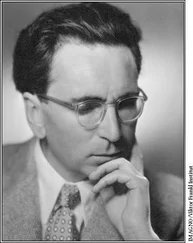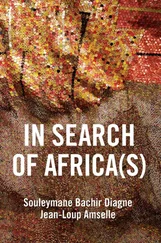“So why didn’t it happen that way, Professor?”
“My good friend Bacon,” said Von Neumann, his thick, dry lips breaking into a smile, “it was a great stroke of luck for the world of mathematics that I did not dream a thing that night!”
When Gödel finally solved the problem in 1931, he was still a young, unknown mathematician. His paper, entitled “On Formally Undecidable Propositions of Principia Mathematica and Related Systems, 1,” was like a bucket of cold water soaking the optimism of Hilbert’s ideas. In his article, Gödel showed that the Principia Mathematica allowed for the existence of propositions that were true yet unprovable—that is, “undecidable.” He then went even further by proving that this phenomenon would hold true in any axiomatic system, in all existing or future fields of mathematics. Against what all the experts had predicted, Gödel had proved beyond a doubt that mathematics were incomplete.
With shockingly simple reasoning, Gödel refuted the romantic notion that mathematics could fully interpret the world, free of the contradictions inherent in philosophical inquiry. His paper was so successful that he didn’t have to write the follow-up chapter he had originally planned. His explosive mission was over. The most astonishing aspect of Gödel’s achievement, however, was its simplicity. Reformulating Epimenides’ ancient paradox—of course, the bedrock of all mathematical paradoxes—he had hit upon the theorem which proved his hypothesis. It said:
To every w-consistent recursive class k of formulae there correspond recursive class-signs r such that neither v Gen r nor Neg ( v Gen r ) belongs to Flg(k) (where v is the free variable of r )
An approximate translation of this might be: “All consistent axiomatic formulations of number theory include undecidable propositions.” In simpler terms, Gödel said the following: “The system of Principia Mathematica offers no proof for this statement of number theory.” A possible expansion of the same: “This proposition of number theory has no proof within number theory,” which might also be stated in the following manner: “This logical proposition is unprovable by the very laws of logic.” The statement could even be extended to the realm of psychology: “It is impossible for me to prove this idea I have about myself.”
To recapitulate, Gödel stated that in any system—scientific, linguistic, mental—there will always exist statements that are true but unprovable. No matter how hard one tries, no matter how perfect a system one creates, there will nevertheless exist unprovable holes and voids, paradoxical arguments that behave like termites and devour the things that seem most solid. Gödel did for mathematics exactly what Einstein’s relativity theory, Bohr’s quantum theory, and the discoveries of their collective disciples did when they proved that physics was no longer an exact science—that is, an amalgam of absolutes. Nobody was safe in a world that was suddenly dominated by uncertainty. Thanks to Gödel, truth became more slippery and elusive than it had ever been before.
Vivien’s body stretched out again across Bacon’s bedsheets like a sinewy brown stain. She had arrived at his apartment just after dusk. Her long, bare arms were now lost in the darkness of the night, coated with a kind of dew from the persistent rain that fell outside. Only three days had passed since Bacon’s acrimonious telephone conversation with Elizabeth. As he began to kiss Vivien’s earlobes, he remembered that he had considered leaving her, too. But the moment she had arrived at his house, he knew that he would be unable to resist the temptation of possessing her once again.
As if freed from a prison sentence, for the first time in a very long time Bacon was overcome by the desire to be tender with his lover. Suddenly she seemed fragile and innocent, not pained and mysterious, and he wanted to make up for his many months of betrayal. Perhaps he was simply projecting the love he wanted for himself, but instead of watching her with cold eyes, he now decided to undress her, bit by bit, as if preparing a little girl for her bath. Then he kissed her on the lips slowly and tenderly (an indulgence he normally avoided) and stroked her curly black hair. And then, finally, he made love to her with the kind of tenderness usually reserved for love affairs with virgins. The only aspect of his routine that remained unchanged was the stubborn silence he maintained while penetrating her body.
“Do you love her?”
Nestled amid the sheets, Vivien looked like a drowning woman trying to defend herself against an enormous wave crashing down upon her. Bacon was lying on her back, and as he stretched himself on top of her body, he wondered if he had become the wave she was struggling against.
“No, well, I don’t know,” Bacon stammered.
“Are you going to marry her?”
“Yes.”
“Why, if you don’t love her?”
“Don’t ask me those questions. That’s just the way it has to be, I suppose. There are things a person has to do: get married, have children, die. Listen, from the beginning you knew. I never led you on, Vivien.”
“You don’t even remember my name. How could you possibly lead me on?” Vivien moved away from Bacon and got up from the bed. She didn’t seem angry, or even disappointed. She began gathering up her clothes, strewn across the floor.
Bacon looked at her as if he were staring at an ancient armoire that had suddenly sprung open, emptying bundles of photographs and lost memories onto the floor.
“Can I ask you something?” he finally said to her, haltingly, not even rising from the bed. “Just this once, Vivien, don’t go. Stay with me tonight. It’s raining. And I want to see your face in the morning.”
The next day, Bacon woke up very early, doubly vexed: by the unfamiliar presence of Vivien, and by the conference that Professor Gödel was to give that morning. For a few seconds he remained still, contemplating Vivien’s body as she continued sleeping peacefully. In the early morning light, she seemed lovelier than ever to him. Without making a noise, Bacon arose from the bed and got ready for the day. As he showered, he couldn’t shake the strange feeling of peace that he felt upon opening his eyes and finding Vivien at his side. He told himself he had to forget about her, but her perfume clung stubbornly to his skin. Much as he tried, he could not rub out her scent with soap and water.
During the past few days, Bacon had begun to read up on Gödel’s life, as if he were planning to discuss the man’s biography at some later date. All the professors at the institute seemed to admire and respect him, even if they often dropped hints indicating that his personality was as difficult as his theorems. But he was one of Einstein’s close friends.
Gödel had first come to the institute as a visiting professor in 1933, while still a professor at the University of Vienna. His lectures at that time (obviously) focused on the incompleteness of mathematics, and he tended to inspire intense (verging on obsessive) interest among those who came to hear him speak on the topic. Very few men of science, with the possible exception of Einstein, could boast of such an attentive audience. Oswald Veblen, who organized the event, was delighted by the enthusiastic turnout. And though Gödel used the very weakest voice to expound upon the fundamental theories of logic, the students devoured his sentences, as if deciphering them was an additional privilege that would grant them greater and deeper access to their master’s incredible conclusions.
Everything had gone according to schedule until one morning, when Gödel announced to Veblen that he had to return to Europe immediately. He would not be able to finish his lecture series. Unable to invent an excuse, he simply said that he felt a pressing need to return home, that he was terribly sorry but he couldn’t do a thing about it. After apologizing to the other professors at the institute, Gödel returned to Europe. Later on, in the fall of 1934, it was discovered that upon his return he had checked into the West-end Sanitarium, on the outskirts of Vienna, for psychiatric treatment, the victim of a profound clinical depression.
Читать дальше












